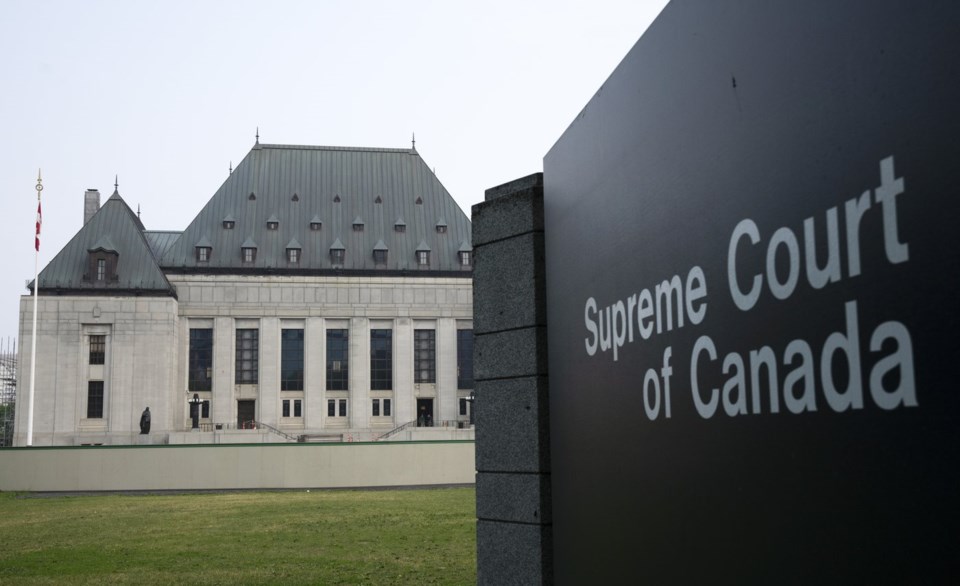Canada's top court has dismissed Ontario's request to weigh in on a major challenge to its climate plan brought by a group of young activists.
The decision released on Thursday means the case will be revived with a new hearing in the lower courts.
In 2019, at the height of a youth-led wave of climate activism, 12-year-old Sophia Mathur and six other young people joined together to challenge Ontario's watered-down emissions target.
Lawyers for the group argued the province's 2018 decision to replace its climate target with a weaker one committed the province to dangerously high levels of planet-warming greenhouse gases.
They argued the revised target jeopardized their right to life and discriminates against them as young people who will bear the brunt of future climate impacts.
Ontario had brought the new emissions target in 2018 after scrapping the law underpinning its cap-and-trade system. It replaced the target in that law – of reducing emissions to 37 per cent below 1990 levels by 2030 – with a new aim of 30 per cent below 2005 levels.
The young people brought evidence to show the revised target could allow for 30 additional megatonnes of annual emissions, the equivalent emissions from about seven million cars every year from 2018 to 2030.
They asked the court to direct Ontario to set a science-based target consistent with what would be necessary to meet Canada's international climate commitments.
Their challenge was initially rejected by the lower court, but it was given fresh life by the Court of Appeal for Ontario last year, which sent the case back to a trial judge for a new hearing.
Ontario then asked the Supreme Court of Canada to weigh in on the case, saying it raises questions of national importance about whether governments are constitutionally required to fight climate change.
The top court declined to do that, so the Appeal Court's decision stands and a fresh hearing will come next.
Before this case, courts had dismissed citizen-led Charter challenges of climate targets on preliminary grounds, often because they found them to be too broad or too political. Despite Ontario's attempts to have this case tossed out on similar grounds, the seven young people made history.
It was the first case in Canada to consider – in a full hearing, with piles of expert evidence on the risks of global warming – whether a government's climate plan could actually violate the Charter.
Legal experts have said the case could clarify whether governments in Canada have any constitutional obligation to protect Canadians from climate change.
"This case is really important for basically the trajectory that Canada is headed in terms of combating climate change and whether or not, as a country, we will be able to avoid the worst, most catastrophic impacts of climate change on a time scale that is meaningful, especially for young people," climate law expert Stepan Wood previously told The Canadian Press.
Wood had argued that the Supreme Court deciding not to hear the case could be seen as positive for the activists' chances.
But Nathalie Chalifour, a University of Ottawa law professor, argued before the decision that if the case was punted back to the lower courts, it could still wind up back in front of the Supreme Court down the road.
It could mean more time spent on the case without getting clear direction from the court, she said.
"Every year that goes by, the climate emergency worsens and we shut out options, we risk passing tipping points that are irreversible on a human time scale," said Chalifour, who acted as a lawyer for an intervener, environmental group Friends of the Earth, when the case went before the Appeal Court.
"The sooner we hear these matters the better," she said.
— With files from Rianna Lim.
This report by The Canadian Press was first published May 1, 2025.
Jordan Omstead, The Canadian Press



